 In any series of numbers in arithmetical progression, the sum of the two extremes is equal to the sum of any two terms equally distant from them; as in the latter of the above series 6 + 1=4+3, and =5+2. In any series of numbers in arithmetical progression, the sum of the two extremes is equal to the sum of any two terms equally distant from them; as in the latter of the above series 6 + 1=4+3, and =5+2.  A Concise System of Mathematics ... - Page 58by Alexander Ingram - 1830 - 120 pagesFull view A Concise System of Mathematics ... - Page 58by Alexander Ingram - 1830 - 120 pagesFull view - About this book
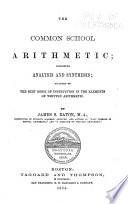 | James Stewart Eaton - Arithmetic - 1864 - 322 pages
...8, Ana. 372. PROBLEM 4. To find the sum of a series, the extremes and number of terms being given. The sum of the extremes is equal to the sum of any two terms that are equally distant from the extremes ; thus, iu the series, 3, 5, 7, 9, 11, 13, we have 1st 4-... | |
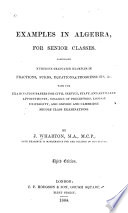 | James Wharton - 1864 - 180 pages
...harmonical mean between 2 and 7; and shew that the sum of the first and last terms of an arithmetical series is equal to the sum of any two terms equally distant from the first and last terms respectively. (12.) If а : 4 : : о : <Z : : e :/, shew that ,. , a + 6 c... | |
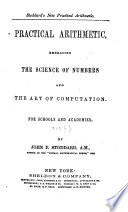 | John Fair Stoddard - Arithmetic - 1868 - 356 pages
...from each term successively ; as, 17, 15, 13, 11, 9, 7, 5, 3, and 1. 442. The sum of tho extremes ia equal to the sum of any two terms equally distant from them, or to double the middle term. Thus, I 443. The following are the five quantities considered, three... | |
 | Horatio Nelson Robinson - Algebra - 1866 - 328 pages
...sum of its terms must be twice that of the given series. Heuce, in an arithmetical progression, I. The sum of the extremes is equal to the sum of any other two terms equally distant from the extremes. II Twice the sum of the series is equal to the sum... | |
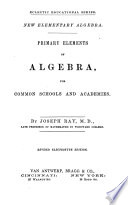 | Joseph Ray - Algebra - 1866 - 250 pages
...Multiply half the sum of the two extremes by the number of terms. From the preceding, it appears that the sum of the extremes is equal to the sum of any other two terms equally distant from the extremes. Since l=a-\-(n — 1)J, if we substitute this in... | |
 | Joseph Ray - Algebra - 1866 - 252 pages
...Multiply half the sum of the two extremes by the number of terms. From the preceding, it appears that the sum of the extremes is equal to the sum of any other two terms equally distant from the extremes. Since l=a-\-(n — l)<Z, if we substitute this in... | |
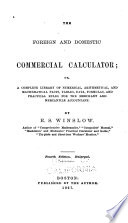 | Ezra S. Winslow - Business mathematics - 1867 - 232 pages
...less extreme. The numbers between these, (9, 7, 5,) are the means. In every arithmetical progression, the sum of the extremes is equal to the sum of any two means that are equally distant from the extremes; and is, therefore, equal to twice the middle term,... | |
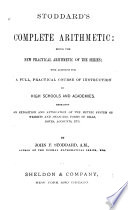 | John Fair Stoddard - Arithmetic - 1888 - 480 pages
...subtracting the common difference from each term successively ; as, 17, 15, 13, 11, 9, 7, 5, 3, and 1. 442. The sum of the extremes is equal to the sum of any two terms equally distant from them, or to double the middle term. Thus, 443. The following are the five quantities considered, three of... | |
 | John Fair Stoddard - Arithmetic - 1868 - 428 pages
...subtracting the common difference from each term successively ; as, 17, 15, 13, 11, 9, 7, 5, 3, and 1. 442. The sum of the extremes is equal to the sum of any two terms equally distant from them, or to double tho middle term. Thus, 443. The following are the five quantities considered, three of... | |
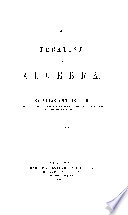 | Elias Loomis - Algebra - 1868 - 386 pages
...2s=(a + Z)+(a+Z)+(a Here a+l is taken n times ; hence or s=-(a+l). 324. In an arithmetical progression the sum of the extremes is equal to the sum of any two terms equidistant from the extremes. This principle follows from the preceding demonstration. It may also... | |
| |